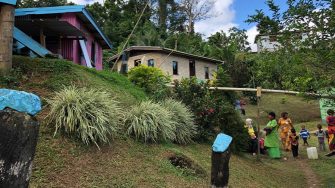Pacific Futures: Urbanisation, Development, Climate Change and Resilience
4 June 2019
4 June 2019


Tuesday, 4 June 2019

10am - 2pm

Room 388, UNSW Law (Map Ref: F8), UNSW Sydney
The UNSW community is invited to participate in a half day workshop hosted by the Institute for Global Development (IGD) and the Rapid Urbanisation Grand Challenge, opens in a new window
The aim of this half day workshop is to identify current activities underway in UNSW concerning urbanisation, resilience, climate change and development in the Pacific, and to identify potential opportunities for collaboration.
Most Pacific countries are rapidly urbanizing – over the next 15-25 years, the urban populations of Papua New Guinea, Solomon Islands and Vanuatu are expected to double. Currently 10 out of 21 Pacific countries are more than 50 per cent urbanized.
While urbanisation brings with it social and economic opportunities, there are also a number of development challenges. These include:
Vulnerability to natural hazards, in particular storms, tropical cyclones, earthquakes, tsunamis and volcanoes
Rapidly expanding informal urban settlements
Increasing crime and violence
Particular susceptibility to climate change
Weak response from national governments to managing urban growth
Land ownership complexities
Pressures on food and water availability
Public Health challenges
City management challenges, such as waste and appropriate infrastructure.
Despite a small number of initiatives currently underway in the Pacific, there has been relatively little attention given to the impact of urbanisation – in particular, the links between urban growth and factors such as development, climate change and building resilience to hazards.
This exploratory workshop aims to bring together researchers in UNSW working in the Pacific engaged in one or more of the above issues, to present current work and to explore potential opportunities for cross-disciplinary collaboration and engagement.
The workshop will comprise introductions, brief presentations, and a discussion on potential opportunities for future collaboration and research.